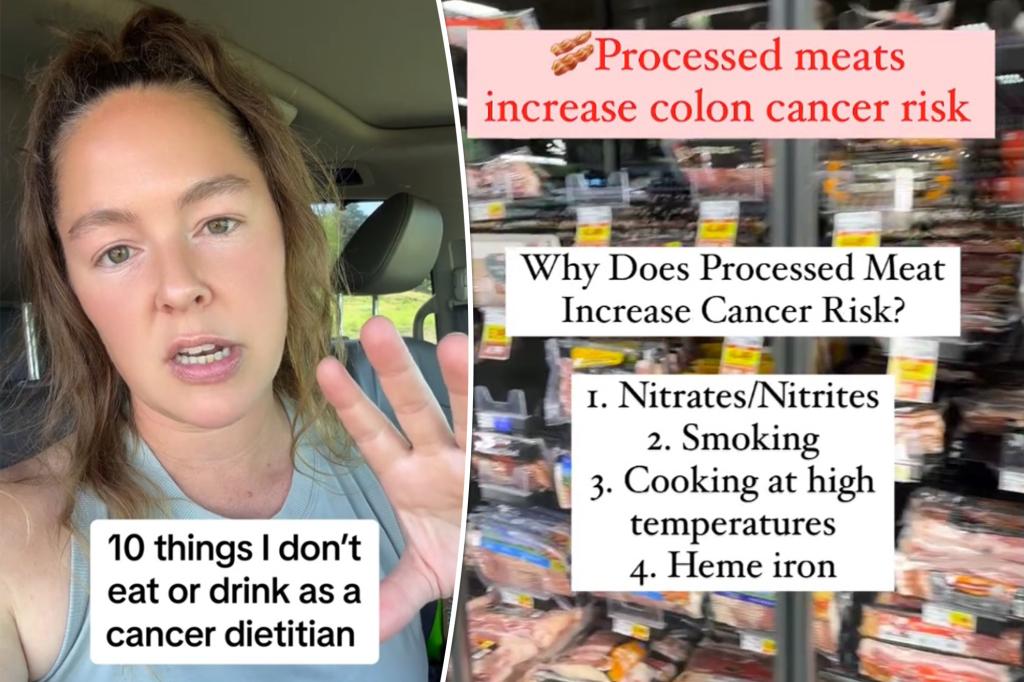In a TikTok video, Washington-based oncology dietitian Nichole Andrews shared her concerns about seven foods and drinks that may increase the risk of developing cancer or having it return. She advises against alcohol, processed meats, soda, red meat, coffee drinks, white grains, and plant-based milks. Andrews, who is a teetotaler, emphasizes the negative impact of alcohol on cancer risk, as it can damage DNA and prevent the body from repairing itself. Processed meats, such as deli meats and hot dogs, are linked to an increased risk of colorectal cancer, as classified by the World Health Organization. Soda, especially sugar-sweetened varieties, can lead to excess body fat tissue and a higher risk of 13 different cancers.
Red meat consumption in moderation is not associated with an increased cancer risk, according to Andrews. However, consuming more than 18 ounces of red meat per week has been linked to a higher likelihood of developing colorectal cancer. Coffee, when consumed in moderate amounts, has shown health benefits such as reducing the risk of liver cancer and other alcohol-related liver diseases. Andrews recommends making changes to high-calorie coffee drinks to avoid excess sugar and calories. White grains, such as white bread, lack fiber and essential nutrients found in whole grains, which can help reduce the risks of colon and breast cancer. Plant-based milks are lower in protein compared to full-fat dairy, which contains calcium that reduces the risk of colorectal cancer.
Experts support Andrews’ recommendations, highlighting the potential risks associated with the consumption of alcohol, processed meats, sugar-sweetened beverages, and excess red meat. The chemical acetaldehyde found in alcohol can damage DNA and hinder the body’s ability to repair itself, raising the risk of various cancers. Processed meats, a known carcinogen, have been linked to colorectal cancer, while sugary beverages can lead to excess body fat tissue and an increased risk of liver cancer. Red meat, especially in large quantities, may facilitate the production of potentially carcinogenic chemicals due to its heme iron content.
By choosing whole grains over white grains, individuals can benefit from more fiber and nutrients that reduce the risks of colon and breast cancer. Avoiding plant-based milks in favor of full-fat dairy can provide essential nutrients such as protein and calcium, which help reduce the risk of colorectal cancer. Making informed choices about food and drink consumption based on potential health risks, as recommended by Andrews and supported by experts, can contribute to overall better health outcomes and a decreased risk of developing cancer. Ultimately, being mindful of the impact of certain foods and beverages on cancer risk can help individuals make healthier choices for themselves and reduce their likelihood of developing the disease.


